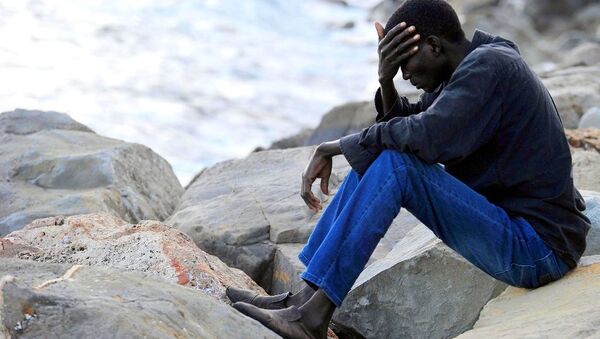In June, EU leaders failed to agree on how to spread 40,000 asylum seekers in Greece and Italy among its members over the next two years, postponing the decision until the end of the year. Juncker said he was disappointed at the failure to reach agreement.
"Ministers, unlike citizens, have an obligation to act. We made proposals that went far, while still being modest given the scale of the problem. We proposed a mandatory system to redistribute asylum seekers and people who need international protection, but the member states did not follow us and we are forced to seek an agreement on a voluntary basis."
"If we don't get there on a voluntary basis, we will have to reconsider the Commission's proposals," Juncker said.
Jean-Claude Juncker says EU states have a duty to help #migrants must not be "blinded by populist thought which is present in every country"
— Jonathan Paterson (@patersonjon) August 5, 2015
In an analysis of the Mediterranean migrant crisis, the Council on Foreign Relations said:
"To date, the European Union's collective response to its growing migrant crisis has been ad hoc and, critics charge, more focused on securing the bloc's borders than on protecting the rights of migrants and refugees."
"With nationalist parties ascendant in many member states and concerns about Islamic terrorism looming large across the continent, it remains unclear if political headwinds will facilitate a new climate of immigration reform."
Open Borders Agreement
At the root of the crisis in Europe is the open borders agreement that goes to the heart of the EU project, which is founded on the principle of the free movement of people, goods and services. It was conceived in an age when nobody could imagine the mass diaspora from the Middle East and Africa.
The lives of others are important. Where they come from is irrelevant. Migrants need our support. #migrantcrisis pic.twitter.com/TfnKOzOUbt
— James Melville (@JamesMelville) July 31, 2015
The UN refugee agency UNHCR said last month that, on average, 1,000 refugees are now arriving on the Greek islands alone every day creating an unprecedented emergency for Greece and other countries. The migrants then move on through Europe trying to find somewhere to settle.
UNHCR says that around 156,000 people had attempted to reach Europe via the sea up to 13 July.
The countries worst-hit by migrants and refugees arriving on their shores are Greece, with 87,000 since the start of the year and Italy, with 77,000.
Top 5 Nationalities arriving by sea in Europe. Our full report with the facts on Med. crisis: http://t.co/3WsCy4Rrjh pic.twitter.com/XVeG7xzTLJ
— UNHCR United Kingdom (@UNHCRUK) August 4, 2015
According to European Commission statistics, the EU received approximately 626,000 applications for international protection in 2014, the highest number of asylum applicants within the bloc since 1992.
As the migrant crisis deepens throughout Europe and political discord over how the EU should handle it, Juncker may come under pressure not only to lead a re-think of EU migration and asylum policy, but also to re-examine the EU’s border controls – both internal and external.


